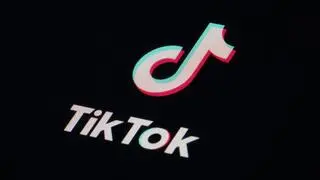Brazil, which has suffered one of the world’s worst pandemic tolls, has responded to the crisis by distributing so much cash directly to citizens that poverty and inequality are approaching national historic lows.
Some 66 million people, 30 per cent of the population, have been getting 600 reais ($110) a month, making it the most ambitious social programme ever undertaken in Brazil, a shocking shift under President Jair Bolsonaro, who railed against welfare, dismissed the virus — and now finds himself newly popular.
The government hasn’t published its own figures yet but data from the Getulio Vargas Foundation, one of Brazil’s top universities, show that those living on less than $1.9 a day fell to 3.3 per cent in June from 8 per cent last year, and those below the poverty line were at 21.7 per cent compared with 25.6 per cent. Both represent 16-year lows.
Economist Daniel Duque, the main investigator, said poverty has, in fact, hit the lowest rate since data collection began 40 years ago but a shift in definitions in 2004 makes direct comparison before then slightly complicated. He added that unpublished measurements from July and August show that inequality calculated by the so-called Gini coefficient fell below 0.5 for the first time ever.
Election time
In other words, as Covid-19 has killed some 122,000 Brazilians, it has paradoxically driven down poverty and inequality, at least in the short term, and also placed government welfare at the heart of political debate, like a decade ago with the Bolsa Familia programme that lifted millions. The issue will reverberate in Novembers local elections, a dry run for the presidency in 2022.
Duque says it’s as if Brazil had suddenly created a massive basic-income programme. He believes it won’t be possible to end it soon: The population will surely demand more types of programmes like this, and “we cant run the risk of a massive drop-off”.
In fact, the government has begun paring it back. On Tuesday, Bolsonaro announced that handouts would be halved for the remainder of the year. And while he promised to make some form of stipend permanent he hasn’t indicated how he will pay for it.
Unsustainable approach
Economists say the approach is unsustainable. “Brazil is headed to its largest primary deficit ever of over 11 per cent of GDP this year, and the challenge is how do you unwind from this?” says Christopher Garman, Managing director for the Americas at Eurasia Group. “There is no free lunch.”
Markets agree. Last week, investors engaged in a massive sell-off of Brazilian assets after Bolsonaro suggested he might be willing to exceed constitutional spending caps to finance permanent stipends. The real slid more than 2.2 per cent to 5.6320 per dollar, while Brazilian stocks fell 2.7 per cent, the most in emerging markets. Both are still recovering.
This is due to the astronomical price of the programme, known as the coronavoucher, 50 billion reais ($9.3 billion) a month through August. It cost in five months what the Bolsa Familia — created by former President Luiz Inacio Da Silva, or Lula — spent in eight years. That plan gives out $35 per month, reaching some 14 million families this year.
The coronavoucher, which accounts for nearly half of Bolsonaros recovery package, has driven up his popularity, especially with the poor.
Jose Carlos Alves, 56, who sells souvenirs on the outskirts of Brazils capital, Brasilia, says the $110 each month have shifted his politics as he faces more months without tourists or sales. Once loyal to Lulas long-ruling Workers Party, he says the aid shows Bolsonaro cares and “now has my vote in 2022”.
Monica de Bolle, a senior fellow at the Peterson Institute for International Economics, who advised lawmakers on the legislation for emergency aid, said this is a wider phenomenon: Bolsonaro has realised the obvious — Brazil is a poor country with lots of poor people and if you give them cash transfers you’ll get their votes.







Comments
Comments have to be in English, and in full sentences. They cannot be abusive or personal. Please abide by our community guidelines for posting your comments.
We have migrated to a new commenting platform. If you are already a registered user of TheHindu Businessline and logged in, you may continue to engage with our articles. If you do not have an account please register and login to post comments. Users can access their older comments by logging into their accounts on Vuukle.